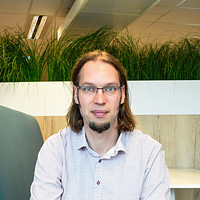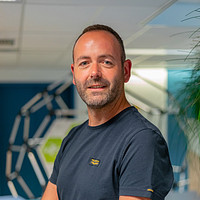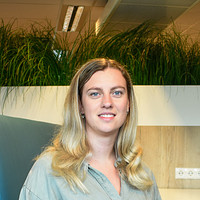Applied Nanotechnology
The emerging field of nanotechnology focuses on materials on a micro or nano scale, where traditional disciplines such as physics, chemistry, biology and engineering converge. It is the ability to control the structure of matter that enables the development of novel materials and products, which will impact a wide range of application areas.
Our mission is to initiate and perform high-level applied and practice-oriented interdisciplinary research to bridge the gap between fundamental technology and various practical applications to solve and contribute to solutions for our current societal challenges.
Our expertise
(Bio)sensing and interfacing
Using micro- and nanotechnology-based techniques, we aim for sensitive, selective molecular detection. Our goal is to advance proof-of-principle nanosensors, such as nanophotonic, bio-electrical, and electrochemical types, into functional demonstrators. This includes developing sensor interfaces for affinity coating, control, and readout.
Microsystem production, microfabrication, testing and probing
We use advanced micro- and nanofabrication techniques like 3D printing, laser cutting, inkjet printing, and precision assembly to integrate nano- and microdevices into larger systems for practical applications. In addition, we leverage cutting-edge characterization technologies to study materials and chip-based devices at the micro- and nanoscale, developing advanced testing methods for industry. Our focus includes photonics and MEMS applications, such as electrical and photonic testing, wafer metrology, process modeling, and probe microscopy techniques.
Cell and molecular biology
We study biological processes at cellular and macromolecular levels, focusing on structure and function. Techniques include conjugating biomolecules to surfaces for sensor development and culturing cell lines for organ-on-a-chip devices. Drug testing is conducted to replace animal testing and evaluate antimicrobial properties.
Collaborate or questions?
Contact us.
dr. ir. Martin Bennink & dr. ir Cas Damen
Our news
Our focus
We focus on different research lines:
Circularity
This research line is dedicated to developing new methodologies for recycling electronic components and chips. The goal is to improve efficiency and sustainability in the recycling process, but also to obtain knowledge to be used in the production and assembly of chip-based devices. This involves exploring innovative techniques to extract valuable materials from electronic waste and enhance lifecycle management. The ultimate aim is to advance recycling practices, reduce electronic waste, and contribute to more sustainable electronic manufacturing and disposal.
More than Moore
This research line focuses on advancing quantum technology, photonics, and MEMS as part of the "More than Moore" approach. This involves exploring innovative methods and applications that go beyond traditional semiconductor technology. The goal is to drive progress in these cutting-edge fields and develop new solutions with broader impacts.
Molecular Sensing and Point-of-care Technologies
The research focuses on developing advanced biomolecular sensors and devices for rapid detection of gases, bodily fluids, or other samples at the point of care. The goal is to improve the speed and accuracy of medical diagnostics, especially in urgent scenarios, to aid in faster decision-making.
Lab-on-a-Chip and Organ-on-a-Chip technology
This applied, multidisciplinary research is dedicated to developing organ-on-chip and lab-on-chip devices for advanced applications. The work aims to reduce and replace animal testing, promoting ethical alternatives in research. Additionally, it involves designing intervention therapies and personalized medicine solutions to enhance medical treatments.
Nano4Crime
Developing nanotechnologies to enhance and improve forensic research in both laboratory settings and on crime scenes. This is done in collaboration with the research group Technologies for Criminal Investigations. This partnership aims to advance the integration of nanotechnology into forensic practices.
Functional surfaces and nanomaterials
Structures of surfaces and nanomaterials are controlled at the micro- and nanoscale, with the purpose to provide them with novel functionalities, such as making them suitable for cellular growth, extremely water-repellent or rather hydrophilic, more sustainable, self-cleaning or antimicrobial.
Our projects
Would you like to contribute to research of direct value to practice and society?
Our research group carries out practice-oriented research in close cooperation with industry, civil society organisations, and universities. Together, we develop innovative solutions to current issues, with our results not only strengthening professional practice but also enriching education and science. We invite you to cooperate with us. Your knowledge and expertise can play an important role in achieving sustainable change and promoting innovation. Together, let’s create impact that matters.
Together, let's create impact that matters
Read moreOur staff




dr. ir. Aleksandar Andreski
Associate Lector Applied Nanotechnology
[email protected] Profile LinkedIn





































Related study programmes
The lectorate is involved in the following programmes:
Our locations
-
-
-
High Tech Factory - Universiteit Twente
Hallenweg 15
7522 NH Enschede